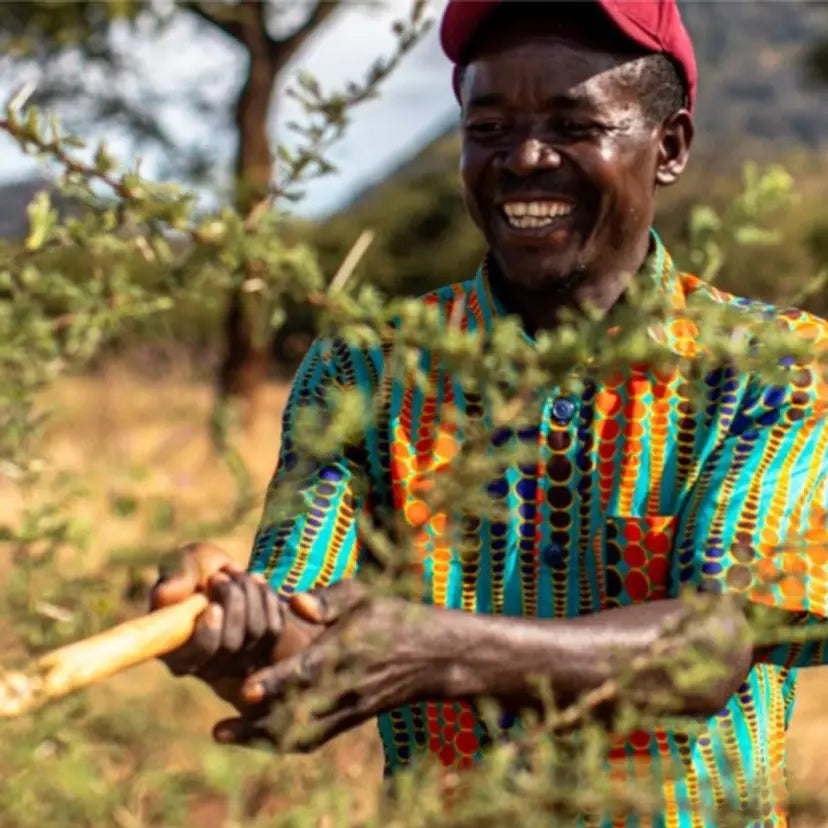
How We're Balancing Out Our Carbon Footprint

Just over one year after launching our partnership, we’re excited to share more about our on-going collaboration with Justdiggit, a grassroots organisation that fights global warming through regreening projects in Africa. Justdiggit joins forces with local partners and communities in their mission to restore dry, degraded land within the next ten years.
As part of our ambitious goal of becoming net zero by 2030, we’ve been balancing out our carbon footprint through regreening projects with Justdiggit since April 2021. These projects, however, go way beyond carbon sequestration: they aim to rehabilitate degrading landscapes on a large scale, benefiting nature, biodiversity and local communities.
ABOUT JUSTDIGGIT
So why did we decide to partner with Justdiggit? In addition to its incredible achievements so far, Justdiggit sets itself apart by focusing on restoring degraded land – tree stumps, specifically – rather than planting new forests, which has a lower survival rate. The organisation uses proven Sustainable Land Management techniques to enable tree stumps to regrow into full-fledged trees. These stumps already have established root systems, and as they’re often indigenous to the land, they’re well adapted to the hot, dry climate. This strongly increases their survival rates in comparison to new trees planted. In Central Tanzania, this intervention is locally referred to as Kisiki Hai, which translates to Treecovery. Restoring vegetation in dry, degraded areas benefits the soil’s water availability, as the root systems make the land more porous, which means more water is able to seep deep into the soil. Strong vegetation also prevents erosion and flooding and improves overall soil health, allowing plants and trees to continue growing.
SO WHAT’S NEXT?
We’re excited to continue our partnership with Justdiggit, balancing out our carbon footprint while supporting them in their efforts to regreen Africa. Our primary focus, however, is and will remain on reducing our emissions, as we work towards becoming net zero in 2023. Stay tuned!







